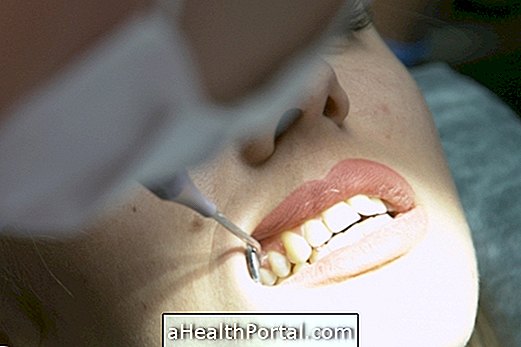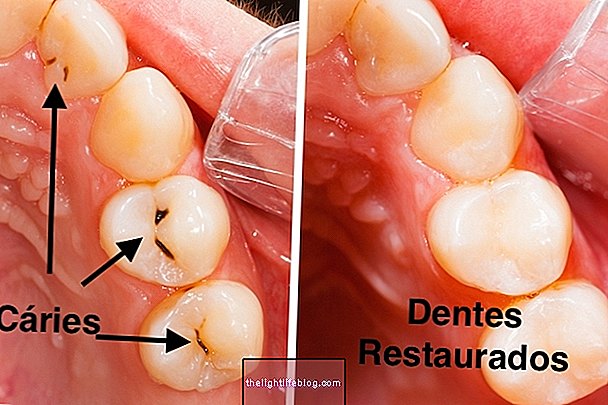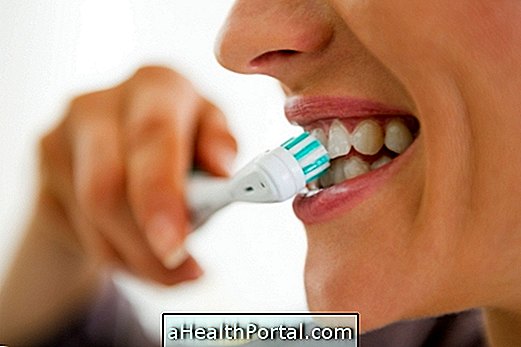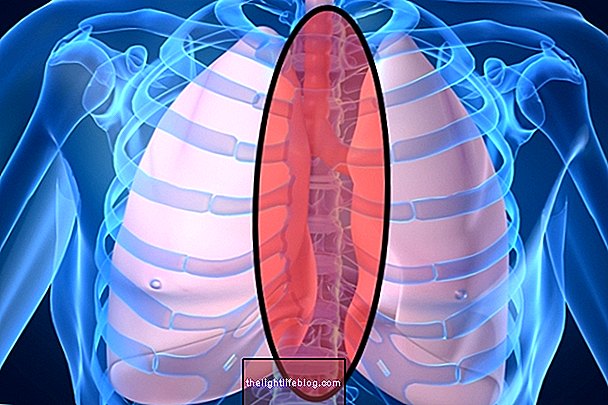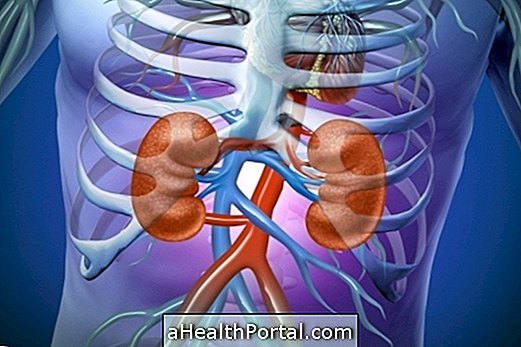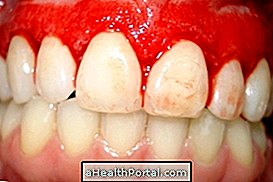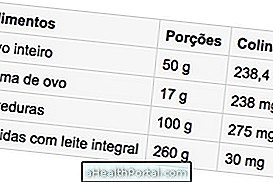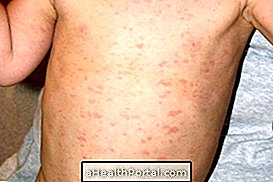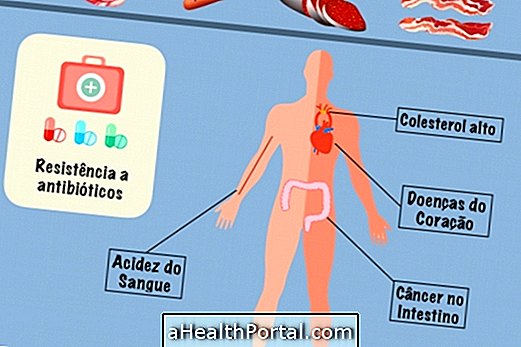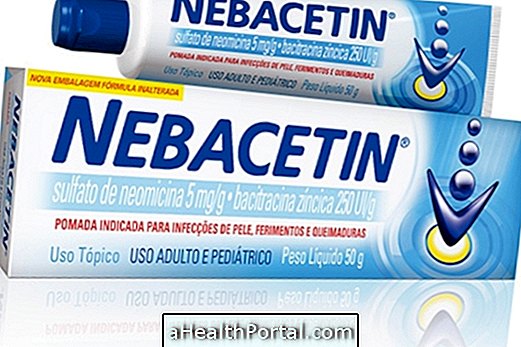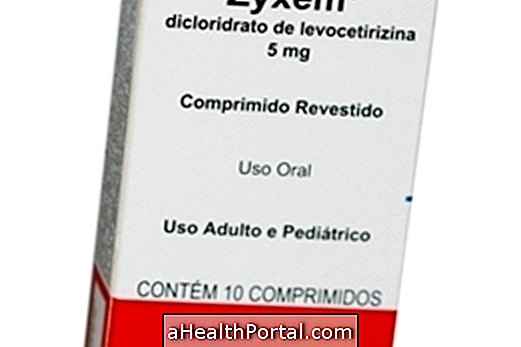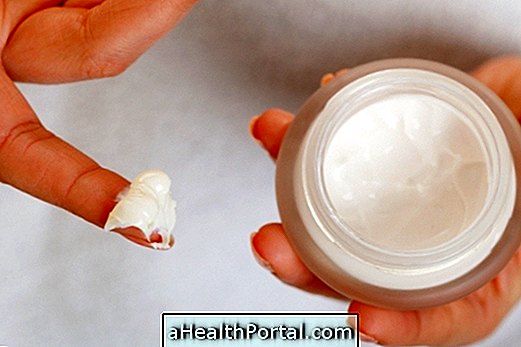To eliminate bad breath once and for all you should eat easily digestible foods such as raw salads, keep your mouth moist, and maintain good oral hygiene by brushing your teeth and flossing your teeth every day.
However, it is important to look closely inside the mouth because tooth decay and tartar can also cause halitosis, as well as other changes such as tonsillitis and sinusitis. Learn how to identify and treat cavities.
Thus, to cure bad breath is advised:
1. Keep your mouth clean
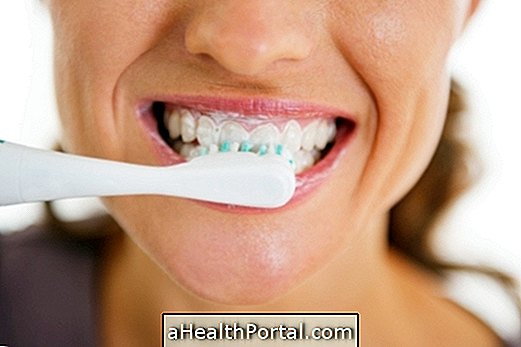
When waking up, after meals and before going to sleep, you should floss the tooth between your teeth and brush the teeth with a firm but soft toothbrush and about half a centimeter of toothpaste, rubbing all your teeth and also the tongue, the interior of the cheeks and the sky of the mouth. After rinsing the mouth, an antiseptic should be used to eliminate germs that may still be lodged in the mouth. Here's how to brush your teeth properly.
2. Always have a moist mouth

Drinking plenty of water helps keep the mucous membranes properly hydrated and the breath is pure, and anyone who does not like drinking too much water can try to put the juice of half a lemon, or other fruit sliced in 1 liter of water, for example, to make it more easy to consume 2 liters of water per day.
Citrus juices like orange or mandarin are also good options to stop bad breath, and should be consumed regularly. Check out some tips to stop bad breath.
3. Avoid staying more than 3 hours without eating

Eating more than 3 hours without eating is one of the causes of bad breath, so it is important to eat often easily digestible foods such as raw salads, cooked vegetables and lean meats because they have fewer fats and pass quickly through the stomach. For snacks, fruits and yogurt are the most indicated because they provide energy with fewer calories than snack foods and soda, for example, and are also more easily digested.
In addition, one should avoid eating foods that promote bad breath like garlic and raw onion, for example. However, bad breath can also be caused by other conditions such as tonsillitis, sinusitis, or caseum in the throat, which are small pellets of pus in the throat, and so it should be noted if there are other symptoms involved such as sore throat or on the face. See which are the 7 leading causes of bad breath.
4. Use home-made solutions

Chewing mint leaves, cloves or ginger bits can help keep the breath pure because they are aromatic and have antiseptic properties that fight the microorganisms that may be inside the mouth.
Natural antiseptic for pure breath
A good home remedy to combat bad breath is to use a mouthwash by mixing 2 tablespoons of hydrogen peroxide in half a glass of water, or using the following recipe:
Ingredients
- 1 teaspoon of witch hazel extract
- ½ teaspoon vegetable glycerin
- 3 drops of mint essential oil
- 125 ml of water
Method of preparation
Put all the ingredients in a bowl and shake thoroughly. Make daily mouthwashes with this grooming whenever you brush your teeth.
These medicinal plants are easily found in drugstores and in natural food stores. See other home remedies for bad breath.
When to go to the doctor
Although not a frequent cause, bad breath can also be caused by serious health problems such as cancer, so if bad breath stays the same as following these tips a doctor's appointment is advised to perform tests to identify what is causing halitosis and after going to the dentist it may be necessary to go to the gastroenterologist or otorhinolaryngologist.
See other tips for curing bad breath in the video:

